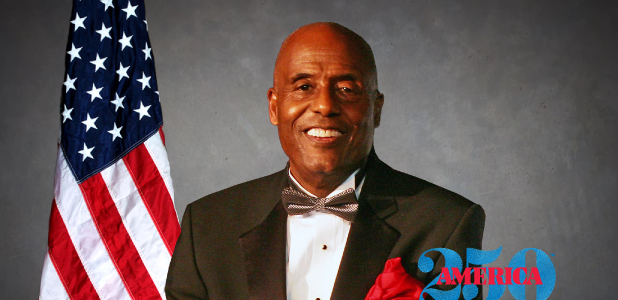

Q: Who’s your favorite Founding Father or other American hero? In what ways might you be like them?
Noah: I’m a huge fan of Frederick Douglass. His story is really heroic to me. Born from slaves, he learned to read and write, then escaped to become an abolitionist. I admire him for fighting for freedom and equality. Once freedom came, he served in the administration for eight different presidents, which is amazing to think about. Douglass was instrumental in taking the United States where it needed to go.
Another thing I really admire about Douglass is his commitment to feminism. During the 20th anniversary of Roe v. Wade, I was asked to identify American feminists of the 19th century. Based on my research, I knew Douglass was important to include on that list. He attended the Seneca Falls Convention in 1828 when the women’s suffrage movement officially launched. When the 15th amendment was being considered, he pushed for the representation of women as well. Throughout his life, he was there for women and fought for their representation in his efforts.
Q: What is the strongest national pride you’ve ever felt?
Noah: During a trip to Boston, I got to hold the sword that Robert Gould Shaw held during his death. I truly felt a connection to the Civil War and the four million slaves that were freed by the 13th amendment in that moment.
Q: What is your favorite American saying or quote? Why does it inspire you?
Noah: James Russell Lowell has a wonderful quote in his poem The Present Crisis:
“New occasions teach new duties; Time makes ancient good uncouth;
They must upward still, and onward, who would keep abreast of Truth”
We must continue to change and grow as a society and leave the past behind where it needs to be left behind, honoring it when it needs to be honored. But also expanding it where it needs to be expanded. I feel that, particularly now, we really need to understand and appreciate the feelings of all people. As my fellow Commissioner Rosie Rios says, “it’s not his story or her story, it’s our story.” We have an opportunity to get to a broader understanding of our history with America 250. Our nation is a work in progress – we’re continuing to strive towards becoming a more perfect Union. We accelerate as well as commemorate.
Q: What is a unique viewpoint from your home state that you’re excited to bring to this nationwide project?
Noah: I was born in the Fillmore District in California, where both of my parents were educators before they became civil rights pioneers. They didn’t think the schools were what they should be, so we moved to the Richmond District. What I loved most about my experience there was that I went to school with everybody. There were Chinese kids, there were Japanese kids, there were Greek-Americans, Russian-Americans, Blacks, and Whites. We were all there together and I could learn from each kid’s culture, where they came from, what they were interested in.
In fact, my real love of Black history started when a Greek American classmate of mine would share so many stories of his culture and heritage and ask me about mine. I remember telling this to my barber, who went and bought me my first set of Black history books that I would just scour every day and then come back to school to share stories of my culture and history.
I’ve never limited myself from engaging with and learning from multiple groups of people, and I appreciate that California is just like that. We have all these groups that make us a melting pot that a lot of states don’t have. I revel in that and appreciate what California has that to offer in terms of each and every story that we’re going to tell through 2026 and beyond.
Q: What was your first brush with democracy?
Noah: I was nine years old in 1954 when the Brown v. Topeka Board of Education ruling came down, desegregating America, at least in theory and the law. I remember that being the most joyous day. I remember exactly where I was and speaking with my father about the significance of that moment. I felt very proud of our country.
My dad was born in the same year as Plessy v. Ferguson in 1896, and so he lived to see the official dismantling of segregation. Of course, we’re still working on it, but I’ll always hold onto this memory of seeing democracy at work. It gave me a lot of hope in the future of America.
Q: What are your hopes and aspirations for America in the next 250 years?
Noah: I hope America lives up to its founding creed and shows the world that this experiment in democracy is worth it. We must recognize our shortcomings and past, but we can also self-correct and move forward in a way that inspires America. We must learn each other’s experiences, because we’re really missing out if we don’t know each of our stories. We must celebrate as well as commemorate and look ahead to a brighter future for ourselves and new generations.https://www.youtube.com/embed/NfQ93dcA1sc
In honor of Black History Month, Noah delivered his poem “Untreated Death,” inspired by the unethical Tuskegee Experiment that resulted in the medical mistreatment of 600 Black men and deepened mistrust in public health within the African American community.
Noah Griffin Jr. is a San Francisco native and has served local and national communities throughout his career in various capacities, including as a historian, writer, newspaper columnist, radio and television talk-show host, law editor, press secretary, campaign manager, lyricist and vocalist.
To learn more about Noah and other members of the Commission, click here.